Why study this course?
This undergraduate architecture degree is your first step towards a professional career in architecture as you’ll complete the course with exemption from RIBA Part 1. Through our combination of practical design work, formal teaching and field work, you’ll gain the skills and experience necessary to continue on to complete your RIBA part 2 and 3.
The Metropolitan Architecture Student Society (MASS) is very active in organising lectures, events and socials, and has a wide network of industry sponsors. To see what they're up to, follow MASS on Instagram.
More about this course
This degree course offers a multifaceted design-based education that, on successful completion, provides exemption from RIBA 1 – the first stage of a professional qualification in architecture. Typically, graduates go on to RIBA Part 2 and 3 at London Metropolitan University.
Our course is centred on three key themes: the idea and practice of making, an architect’s professional duty of care, and social and environmental responsibility.
You'll take classes in our well-resourced design studios, where you’ll have the chance to work with high-end analogue and digital printing facilities. You’ll also get access to our textile, ceramic, furniture-making and photography workshops.
We complement formal teaching and field work with practical design exploration. The staff is made up of renowned practitioners who bring a wealth of technical expertise to the table and who provide insight into industry best practices within a constantly evolving arena.
With their combined knowledge of traditional and contemporary practices, and of basic principles and new innovations, they're well equipped to help you work towards your own developmental goals and to explore potential career paths.
Assessment
The Architects' Registration Board (ARB) and the Royal Institute of British Architects (RIBA) set out general criteria for assessment within the "Prescription of Qualifications".
Project work makes up 50% of your final mark in each year, and you'll be assessed primarily on your achievements, demonstration of competence and the quality of the work in your portfolio.
Professional accreditation
The course is validated by the Royal Institute of British Architects (RIBA) and prescribed by the Architects’ Registration Board (ARB). Students who are awarded BA (Hons) Architecture are exempted from RIBA Part 1.
Fees and key information
Apply nowEntry requirements
In addition to the University's standard entry requirements, you should have:
- a minimum of grades BBB in three A levels, one of which comes from a relevant subject area such as Art, Humanities or the Social Sciences (or a minimum of 120 UCAS points from an equivalent Level 3 qualification in an art related subject)
- English Language and Mathematics GCSE at grade C (grade 4) or above (or equivalent qualification)
- potential in spatial design, a creative imagination and visual or constructive aptitude
- a portfolio review
If you don't have traditional qualifications or can't meet the entry requirements for this undergraduate degree, you may still be able to gain entry by completing our Architecture (including foundation year) BA (Hons) or Art and Design (including foundation year) BA (Hons).
Interviews
We normally ask candidates to attend a portfolio interview to talk about the process and ideas of their portfolio work. Please be aware that digital portfolios can't be viewed at the interview. The interview day includes a general introduction, a tour and the chance to meet a variety of staff and students. To find out what to include in your portfolio, view our portfolio guidance.
Accelerated study
If you have relevant qualifications or credit from a similar course it may be possible to enter this course at an advanced stage rather than beginning in the first year. Please note, advanced entry is only available for September start. See our information for students applying for advanced entry.
Accreditation of Prior Learning
Any university-level qualifications or relevant experience you gain prior to starting university could count towards your course at London Met. Find out more about applying for Accreditation of Prior Learning (APL).
English language requirements
To study a degree at London Met, you must be able to demonstrate proficiency in the English language. If you require a Student visa (previously Tier 4) you may need to provide the results of a Secure English Language Test (SELT) such as Academic IELTS. This course requires you to meet our standard requirements.
If you need (or wish) to improve your English before starting your degree, the University offers a Pre-sessional Academic English course to help you build your confidence and reach the level of English you require.
Modular structure
The modules listed below are for the academic year 2023/24 and represent the course modules at this time. Modules and module details (including, but not limited to, location and time) are subject to change over time.
Year 1 modules include:
- This module currently runs:
- all year (September start) - Tuesday afternoon
- all year (January start) - Tuesday afternoon
In Critical and Contextual Studies 1 you will engage, critically, with the history and theory of your discipline, its extent and conventions, and its broader social and material context in culture and contemporary practice.
You will be guided towards critical reflections on what you see, and you will practice reading connections between different ideas that have shaped the architectural discipline and profession. You will investigate how thinking and articulating ideas about practice in your field can be framed – for example, in relation to history, the economy, society and the environment, or through theory and practice.
You will be introduced to a range of academic skills needed to produce a graduate-level thesis study in your final year. You will be encouraged to develop your own interests, and to reflect on, and take responsibility for, the development of your own learning. This includes surveys in the history and practice of your discipline, research and writing workshops, seminars, library sessions, in addition to guided independent learning.
The aims of the module are to teach skills pertaining to Ethical and Professional Practice; History, Theories and Methodologies (‘themes and values’ from Royal Institute of British Architects (RIBA): The Way Ahead 2021), appropriate to Level 6. The module also aims to provide a practical framework through which you can address the academic discipline of architecture as outlined in the RIBA document ‘The Way Ahead, Education Themes and Values’ 2021 as well as ‘Guidance Notes to Institutions’ issued by the Architects Registration Board (ARB) in 2021.
- This module currently runs:
- all year (September start) - Monday morning
- all year (September start) - Thursday afternoon
- all year (September start) - Thursday morning
- all year (September start) - Monday afternoon
Design Development 1.2 introduces you to the scope and scale of architecture and interior architecture through design projects, culminating in a well-resolved small building design. It emphasises the critical understanding of context and introduces methods of observation, analysis and interpretation of conditions affecting the project(s) and demonstrates how your creative engagement with these conditions informs and assists the design process.
The module will enable you to develop your designs via a sequence of relatively simple projects, each of which, or component of which, focuses on a specific set of relationships. Together these projects introduce you to the different and interrelated issues and inputs affecting the architectural design. These include: the relationships between an architectural design and its physical setting; a client’s brief and the needs of users; cultural context and the natural environment; spatial strategy, and methods of construction.
The module design process is expansive and exploratory and emphasises the creative and imaginative thinking involved. You will learn how to retrieve information and research project ideas as well as develop and present their ideas using the range of techniques developed in Design Skills AR4001. You will develop an understanding of how an architectural project is defined through wide reference to historical and current practice and practice in related disciplines in including art, interior design, planning, urban design and engineering.
The aims of the module are to teach skills pertaining to Structure, Construction and Resources; and Design Processes and Communication (‘themes and values’ from Royal Institute of British Architects (RIBA)) appropriate to Level 4 study. The module also aims to provide a practical framework through which you can address the discipline of architecture as outlined in the RIBA document ‘The Way Ahead, Education Themes and Values’ 2021 as well as ‘Guidance Notes to Institutions’ issued by the Architects Registration Board (ARB) in 2021.
- This module currently runs:
- all year (September start) - Monday morning
- all year (September start) - Thursday morning
- all year (September start) - Monday afternoon
Design Skills 1.1 is designed to introduce you to ways of thinking, communicating, and developing ideas about a subject and within a context. You will be introduced to basic processes of design for architecture, from conceptual idea to a three-dimensional realisation. You will learn to produce a range of drawings and modelling techniques that enable you to creatively explore and engage in the design process and begin to see the relation between intention, process and outcome through actively producing work.
Practically the module introduces you to a range of drawing and modelling techniques and establishes the need for you as a designer to think critically about working with different media at different scales. It encourages you to explore possibilities of evocative, analytical, and measured drawing in the representation of existing and proposed spaces and their 3D and material qualities. In terms of drawing, the techniques involved range from measured drawings and models to conceptual sketches and evocative representations of your precedents and designs in both 2D and 3D. It links with art practice and examines the role played by drawing, making and representation in design.
Critically, the module introduces you to: the application of research of precedents and their role in a design project; techniques of making and prototyping, workshop practice and the creative use of materials in producing a design.
The module includes formal introductions to the School’s workshops, the acquisition of basic technical skills and competence, sound studio practice and health and safety considerations. It provides a basic introduction to the appropriate use of materials, related processes, and technical applications in the development of ideas, models and prototypes.
The aims of the module are to teach skills pertaining to Design Processes and Communication (‘themes and values’ from Royal Institute of British Architects (RIBA): ‘The Way Ahead’, 2021). The module also aims to provide a practical framework through which you can address the academic discipline of architecture as outlined in the RIBA document ‘The Way Ahead, Education Themes and Values’ 2021 as well as ‘Guidance Notes to Institutions’ issued by Architects Registration Board (ARB) in 2021.
- This module currently runs:
- all year (September start) - Tuesday morning
Technology 1 introduces you to the disciplines of building technology and will enable you to identify and work with the basic principles involved in their application. You will be introduced to four core areas: structural design; materials (properties and selection) and construction (of building elements and components); building services; and environmental design.
The module is focused on well-considered sustainable design principles and the construction of habitable space in smaller-scale buildings. You will explore the different disciplines of building technology in-situ through on-site surveys, through making and drawing workshops, as well as through lectures, seminars and the utilisation of a wide variety of published sources.
The module aims to prepare you as architects for the complex task of getting work built. It aims to familiarise you with the scope of the industry and the different disciplines involved the design and delivery of buildings; all of which have their own knowledge base, consultants, specialists, manufacturers, resources and forms of communication.
The module also aims to assist you in beginning to frame this complex world and understand how you can work with it to achieve well-considered sustainable designs within the context of climate change. To achieve this aim, the module focuses on two important modes of learning: a) the means to construct coherent and usable bodies of knowledge, and b) to see how principles are applied and enacted in practice.
The aims of the module are to teach skills pertaining to Health and Life Safety; Structure, Construction and Resources; and Design Processes and Communication (‘Themes and Values’ from Royal Institute of British Architects (RIBA): ‘The Way Ahead’ 2021). The module also aims to provide a practical framework through which you can address the academic discipline of architecture as outlined in the RIBA document ‘The Way Ahead, Education Themes and Values’ 2021 as well as ‘Guidance Notes to Institutions’ issued by the Architects Registration Board (ARB) in 2021.
Year 2 modules include:
- This module currently runs:
- all year (September start) - Monday morning
In Critical and Contextual Studies 2 you will critically engage in the history, theory and practice of the discipline of architecture, its extent and conventions, and its broader social and material context in culture and contemporary practice. You will build on the studies you undertook in Level 4 and develop into independent thinkers, capable of selecting an appropriate topic and producing a sustained piece of independent study in the form of a dissertation in Level 6.
Your thinking will be situated within the process of constructing knowledge about your discipline, its history, context, and its professional and ethical dimension. You will rehearse the analytical and discursive skills that are necessary to become knowledgeable about the subjects, bodies and methods in your field; to understand the roles, locations and responsibilities of important players whilst examining the broader ethical questions relevant to architecture; and to become conversant with current debates across the subject area. This process may be approached from the point of view of the producer or consumer, the critic or the professional, the academic or the practitioner.
You will be encouraged to think creatively and to take responsibility for the development of your own learning, and be an active contributor in the process: what you bring to the construction of knowledge counts – and how effectively you construct this knowledge depends on how well you understand the field of your discipline.
The aims of the module are to teach skills pertaining to Ethical and Professional Practice; History, Theories and Methodologies (‘themes and values’ from Royal Institute of British Architects (RIBA):: The Way Ahead 2021), appropriate to Level 6. The module also aims to provide a practical framework through which you can address the academic discipline of architecture as outlined in the RIBA document ‘The Way Ahead, Education Themes and Values’ 2021 as well as ‘Guidance Notes to Institutions’ issued by the Architects Registration Board (ARB) in 2021.
- This module currently runs:
- all year (September start) - Friday afternoon
- all year (September start) - Friday morning
The aims of Design Project 2.2 are to focus on the process of designing two or more building projects. It builds on the skills, knowledge and critical reflection of its co-requisite AR5001 Design Skills, anticipating a higher level of spatial and material resolution. The module develops your skills in the integration of structural, material, environmental and experiential strategies that are tested through the resolution of the design projects.
The module fosters the development of a personal position and working methods as part of the attributes required by a designer. Through this module you will learn to articulate explanations of proposals, be able to discuss your ethical and professional considerations, present your case for specific social and environmental strategies, demonstrate an understanding of the relationship between building technologies and the execution of your design.
The design process continues to be expansive and exploratory and emphasizes the creative and imaginative thinking involved. The projects are presented through drawings, models and prototypes using a range of media. You will be involved in the primary research associated with your project(s) and will work in groups as well as independently. You will cultivate a shared understanding of the project contexts and the briefs enabling you to work collaboratively and share tasks, review each other’s work, and enrich your own ideas.
The aim of this module is to rehearse the production of architectural projects in preparation for the comprehensive project undertaken in the final year. It opens the complex territory of architectural design and gives you more opportunity to determine the variables and develop coherent proposals. The process is controlled through setting projects at different scales and levels of complexity. You will learn to interpret contexts and briefs that are ambiguous, full of uncertainty and often unfamiliar. You will work towards producing coherent building designs that respond to their site and context whilst becoming more capable of testing and evaluating their potential impact on the users and the cultural and natural environment.
The aims of the module are to teach skills pertaining to Health and Life Safety; Ethical and Professional Practice; Structure, Construction and Resources; and Design Processes and Communication (‘themes and values’ from Royal Institute of British Architects (RIBA): ‘The Way Ahead’ 2021) appropriate to Level 5. The module also aims to provide a practical framework through which you can address the academic discipline of architecture as outlined in the RIBA document ‘The Way Ahead, Education Themes and Values’ 2021 as well as ‘Guidance Notes to Institutions’ issued by the Architects Registration Board (ARB) in 2021.
- This module currently runs:
- all year (September start) - Friday morning
- all year (September start) - Tuesday morning
- all year (September start) - Friday afternoon
Design Skills 2.1 aims to expand and strengthen the range of skills, techniques, methods, and processes needed to develop the design projects undertaken in Design Project 2.2. You will learn to select the most appropriate modelling techniques for exploring specific aesthetic and technical requirements from digital and analogue techniques. The module acts in two ways, firstly to provide you with the material basis of skills, knowledge, and representation and secondly as a research tool to develop your design propositions.
You will be introduced to a range of skills which allow you to explore, analyse and interpret precedents, as well as using this knowledge to apply your observations and ideas to architectural designs, their formulation and construction.
You will gain competence in digital and analogue drawing and modeling techniques involving including studio CAD suite and fabrication workshops. These introductions will allow you to acquire competencies to further explore your design modules and develop your skill, fluency, and readiness for industry.
The module supports experiment, trial and error and focuses on selecting, understanding, and using the most appropriate practical techniques available to help realise conceptual and creative ideas in the production and testing of design solutions. It aims to deepen your understanding and knowledge of modes of representation and their application in the broader field of design, including art practice, as well as the practices, protocols and conventions that apply to the field of architecture.
The aims of the module are to teach skills pertaining to Design Processes and Communication (‘themes and values’ from Royal Institute of British Architects (RIBA): ‘The Way Ahead’, 2021). The module also aims to provide a practical framework through which you can address the academic discipline of architecture as outlined in the RIBA document ‘The Way Ahead, Education Themes and Values’ 2021 as well as ‘Guidance Notes to Institutions’ issued by Architects Registration Board (ARB) in 2021.
- This module currently runs:
- all year (September start) - Monday afternoon
Technology 2 builds upon and extends the knowledge and understanding gained in AR4003 Technology 1. It focuses in more detail on how different aspects of technology interact within the context of larger and more complex buildings. The module introduces methods, terms and techniques that can be used to evaluate the range of different relationships that appear under the heading of technology. In particular the module investigates buildings and interiors that may involve multiple clients, for example public buildings and/or medium-density housing. It examines how and why standards are developed as well as the remit for research and experiment. The module further expands the knowledge of structures, materials, construction and detailing, environmental performance and comfort and building services established in AR4003 Technology 1, with particular attention given to sustainability as an ethical framework of values and responsibilities shaping the design of buildings and interiors.
The module aims to develop the student’s confidence in making design decisions. It extends their ability to identify strategies and assess the values involved in technological issues through the preparation and presentation of technical proposition at a range of drawing scales. The module enhances the student’s knowledge and understanding of building technologies and familiarizes them with the process of how to make well considered judgments, on the premise that relationships between various items or even categories of technological knowledge can be modelled and evaluated in a different ways. The module aims to develop a student's repertoire of practical and conceptual skills – including vocabulary – that can keep pace with their growing knowledge of the subject and help realise their design projects in technological terms.
The aims of the module are to teach skills pertaining to Health and Life Safety; Ethical and Professional Practice; Structure, Construction and Resources; and Design Processes and Communication (‘themes and values’ from Royal Institute of British Architects (RIBA): The Way Ahead 2021). The module also aims to provide a practical framework through which you can address the academic discipline of architecture as outlined in the RIBA document ‘The Way Ahead, Education Themes and Values’ 2021 as well as ‘Guidance Notes to Institutions’ issued by the Architects Registration Board (ARB) in 2021.
Year 3 modules include:
- This module currently runs:
- autumn semester - Wednesday morning
- autumn semester - Wednesday afternoon
Critical and Contextual Studies (CCS) in Level 6 offers you an opportunity to develop a sustained enquiry into a topic you choose because it particularly interests you. Building on critical and academic skills gained during two years of previous study, the module encourages you to develop an awareness of issues around which there is some debate, uncertainty or contest. Based on this awareness, you will develop a set of research questions which constitute the topic of your study. This topic can be theoretical, historical, or technical and you may, with guidance, decide to engage with an area of scholarly interest outside the territory of your degree course.
You will develop your topic and respond to your research questions in the form of an extended critical study or Dissertation (6,000–7,000 words). Through this study you demonstrate that you can thoroughly research a topic, use appropriate methods of investigation, and work in a methodical and organised way to develop a coherent argument or line of thought. Teaching and Learning on the module is designed to support you in this process through a combination of seminars, workshops, academic skill sessions and one-to-one supervision; as well as a series of formative and summative assessments which prepare you for the final submission.
The final form and presentation of your Dissertation can reflect a broad range of approaches to research and writing. It may include visual materials or other non-written forms of presentation as long they support your enquiry and comprise an integral part of the whole. By prior approval at the start of the module, your research can be part practice-based, and include primary research and fieldwork.
By virtue of the sustained, independent nature of the learning and substantial final output, the dissertation is also intended to prepare you for possible postgraduate study.
The aims of the module are to teach skills pertaining to Ethical and Professional Practice; History, Theories and Methodologies (‘themes and values’ from Royal Institute of British Architects (RIBA):: The Way Ahead 2021), appropriate to Level 6. The module also aims to provide a practical framework through which you can address the academic discipline of architecture as outlined in the RIBA document ‘The Way Ahead, Education Themes and Values’ 2021 as well as ‘Guidance Notes to Institutions’ issued by the Architects Registration Board (ARB) in 2021.
- This module currently runs:
- all year (September start) - Friday morning
- all year (September start) - Friday afternoon
Design Project Development 3.1 will establish a process of research, design development and proposition that generates the design brief for AR6002 Design Project Resolution 3.2: Comprehensive Design project. It supports you as an independent learner within the framework of the studio. Whilst improving your practical skills and refining your ability to use them productively, the focus in this module is on developing a depth of knowledge and understanding and strengthening approaches to research and project development.
You have already been introduced to the basic range of constituents and conditions that pertain to the design of a building in your previous design projects, technology studies, and historical, theoretical, and professional studies. In this module, you are expected to draw on these as well as the agenda offered by your choice of Studio. The module helps you to establish ownership of the process of research, design development and proposition that generates the design brief and its resolution in the project. The module allows you the opportunity to test working methods, clarify intentions, frame your project proposal and develop your design position within an evaluative and critical context, including external and professional reference points.
The module consolidates skills and knowledge gained at Levels 4 and 5. It works in partnership with Design Project Resolution 3.2 and runs in conjunction with the AR6003 Technology 3, Integrated Design Audit module that requires specific and highly detailed appraisal of its cultural, professional, technical and environmental issues. Its aim is to provide the context in which you can research, generate, explore and test the parameters of a project, its central themes and features. The module places emphasis on developing self-direction and personal focus whilst acknowledging external and professional reference points. This module is complemented by Technology 3: Integrated Design Audit module, which requires highly detailed reflection on the integration of cultural, professional, technical and environmental issues within the design project.
The aims of the module are to teach skills pertaining to Health and Life Safety; Ethical and Professional Practice; Structure, Construction and Resources; and Design Processes and Communication (‘themes and values’ from Royal Institute of British Architects (RIBA):: The Way Ahead 2021), appropriate to Level 6. The module also aims to provide a practical framework through which you can address the academic discipline of architecture as outlined in the RIBA document ‘The Way Ahead, Education Themes and Values’ 2021 as well as ‘Guidance Notes to Institutions’ issued by the Architects Registration Board (ARB) in 2021.
- This module currently runs:
- all year (September start) - Friday afternoon
- all year (September start) - Friday morning
As the culmination of the design studies within the BA (Hons) Architecture course you will be able to excel employing your design ability within Design Resolution: Comprehensive Design Project 3.2. Deriving from the studio programme, the final project will communicate an appropriate level of ambition, complexity and coherence in its design resolution. The creative dialogue with other areas of architectural knowledge informed by and informing the strategic and detailed design development will extend the understanding of the project and demonstrate the qualities of the proposal.
The module uses the research and brief making in the AR6001 Design Project Development module and emphasises the detailed resolution and critical assessment of a complex architectural design. It runs in conjunction with AR6003 Technology 3, Integrated Design Audit that requires specific and highly detailed appraisal of its cultural, professional, technical and environmental issues.
The module is the final design project of the BA (Hons) Architecture course, giving you the opportunity to deploy the understanding, knowledge and abilities you have developed throughout your course in the making of an ambitious and well resolved architectural design. It aims to allow you to demonstrate your ability as an architectural designer: your capacity to define and analyse architectural problems, generate briefs and proposals, integrate knowledge derived from different fields and sources, produce socially relevant inhabitable spaces, enrich rather than deplete the built and natural environment, and design technically competent and safe buildings of aesthetic quality.
The aims of the module are to teach skills pertaining to Health and Life Safety; Ethical and Professional Practice; Structure, Construction and Resources; and Design Processes and Communication (‘themes and values’ from Royal Institute of British Architects (RIBA):: The Way Ahead 2021), appropriate to Level 6. The module also aims to provide a practical framework through which you can address the academic discipline of architecture as outlined in the RIBA document ‘The Way Ahead, Education Themes and Values’ 2021 as well as ‘Guidance Notes to Institutions’ issued by the Architects Registration Board (ARB) in 2021.
- This module currently runs:
- all year (September start) - Tuesday morning
The Integrated Design Audit will enable you to demonstrate the integration and synthesis of key areas of professional architectural knowledge within the context of your studio design projects. The module follows the process of design development to introduce a range of perspectives, issues and interests. This process is recorded, evaluated and reviewed in relation to the major design project.
You will learn to integrate key fields of professional architectural knowledge in your design projects. You will be required to demonstrate that within your design projects you have a knowledge, understanding of and ability in the following core areas: cultural context; management, practice and law; environment, services and energy; structures, materials and construction.
The module is delivered within the design studio, supported by seminars and tutorials by specialists. You will learn from a diverse range of sources. You will gather information and engage in cross-disciplinary collaboration to simulate the dynamic, interdisciplinary and fast-changing nature of contemporary architectural practice, giving you an understanding of practice and an ability to work in teams.
The aims of the module are to teach skills pertaining to Health and Life Safety; Ethical and Professional Practice; Structure, Construction and Resources; and Design Processes and Communication (‘themes and values’ from Royal Institute of British Architects (RIBA):: The Way Ahead 2021), appropriate to Level 6. The module also aims to provide a practical framework through which you can address the academic discipline of architecture as outlined in the RIBA document ‘The Way Ahead, Education Themes and Values’ 2021 as well as ‘Guidance Notes to Institutions’ issued by the Architects Registration Board (ARB) in 2021.
What our students say
"Walking along the corridors, through the studios and workshops I perceived a great energy and excitement crept all over me. I was hit by a wave of motivation. I spent the following three years at London Metropolitan University, making the best of friends. I produced work I never thought of and with the support of great tutors and technicians and peers I pushed my capabilities further than I could have imagined. I am very grateful and proud to have been taught in this school, even though I graduated two years ago I still regularly catch up with the ones who taught me, I consider them above all friends, and I believe the feeling is mutual.
"The architecture degree allowed me to present documents at a level that’s not usual in the corporate or tech world – there were definitely aspects that I took from architecture and the course and the lecturers that helped with the business.”
Kevin Adorni, Architecture BA graduate (2018)
"The strong studio culture creates an environment that facilitates engaging and inspiring conversations between students and staff. Working with students from a range of backgrounds really opened up my experience and enabled me to understand architecture in much more nuanced ways.
"Being immersed in an art school with exposure to a multitude of creative disciplines added a great deal to the richness of my experience of studying architecture. The generous, patient teaching staff gave me the freedom to explore and develop my own position on architecture.
"Access to highly skilled and approachable technicians added so much to my studies, the depth and breadth of knowledge of the workshop staff and their eagerness to share this, understanding my work through the making process was such a valuable experience.
"After nearly two years in practice I find I continue to refer back to the lessons I learnt over almost four years at the School."
Amadeo Martini, Architecture BA graduate (2018)
Where this course can take you
Following successful completion of the course, most graduates go on to complete their RIBA Part 2 and 3, and gain a professional qualification in architecture. Previous alumni have worked for companies such as Caruso St John, David Chipperfield Architects, Macreanor Lavington, Tony Fretton Architects and SANAA in Tokyo.
Graduating with this degree provides you with the core knowledge and skills needed to work in fields such as interior design, urban design and planning. You'll leave with a high-quality portfolio of work, an understanding of relevant cultural and social issues, and the research, design, making and presentation skills valued in many design-related professions.
Our architecture graduates have gone on to exciting careers as architects, design consultants, architectural assistants and designers at impressive practices including Tony Fretton Architects, Eric Parry Architects, Stephen Taylor Architects, Adamson Associates Architects, and Conrad and Partners.
Important information about this course
We're committed to continuously improving our degree courses to ensure our students receive the best possible learning experience. Many of the courses in our School of Art, Architecture and Design are currently under review for 2023-24 entry. We encourage you to apply as outlined in the how to apply section of this page and if there are any changes to your course we will contact you. All universities review their courses regularly and this year we are strengthening our art, architecture and design courses to better reflect the needs of employers and ensure you're well-equipped for your future career.
Important information about the teaching location of this course
We currently have three locations in Holloway, Aldgate and Shoreditch. As we evolve as a University, we'll be reviewing the use of these spaces to ensure all our students have access to the facilities and study areas they need to succeed. This means the campus where this course is taught may change over time.
The experience of our students will always be our top priority and we'll notify applicants and students of any changes to their teaching location at the earliest opportunity.
Collaborative and international links
The University has links with architecture and design schools in Belgium, Finland, Germany, Japan, Italy, Portugal, South Korea, Ukraine and the USA.
Study visits: UK and abroad
In year 1 you'll go on a field trip within Europe, and in year 2 and year 3 you'll join a field trip related to your chosen studio subject.
Previous field trip destinations have included Iceland, India, Texas and Turkey, and many of our links are part of a long-term commitment to social engagement in these countries.
Additional costs
Please note, in addition to the tuition fee there may be additional costs for things like equipment, materials, printing, textbooks, trips or professional body fees.
Additionally, there may be other activities that are not formally part of your course and not required to complete your course, but which you may find helpful (for example, optional field trips). The costs of these are additional to your tuition fee and the fees set out above and will be notified when the activity is being arranged.
Stay up to date
Follow our School of Art, Architecture and Design on Twitter, Facebook and Instagram to stay up to date with everything that's happening in our creative community.
For an insight into what's going on with the Metropolitan Architecture Student Society you can also follow MASS on Instagram.
Discover Uni – key statistics about this course
Discover Uni is an official source of information about university and college courses across the UK. The widget below draws data from the corresponding course on the Discover Uni website, which is compiled from national surveys and data collected from universities and colleges. If a course is taught both full-time and part-time, information for each mode of study will be displayed here.
How to apply
If you're a UK applicant wanting to study full-time starting in September, you must apply via UCAS unless otherwise specified. If you're an international applicant wanting to study full-time, you can choose to apply via UCAS or directly to the University.
If you're applying for part-time study, you should apply directly to the University. If you require a Student visa, please be aware that you will not be able to study as a part-time student at undergraduate level.
When to apply
The University and Colleges Admissions Service (UCAS) accepts applications for full-time courses starting in September from one year before the start of the course. Our UCAS institution code is L68.
If you will be applying direct to the University you are advised to apply as early as possible as we will only be able to consider your application if there are places available on the course.
To find out when teaching for this degree will begin, as well as welcome week and any induction activities, view our academic term dates.
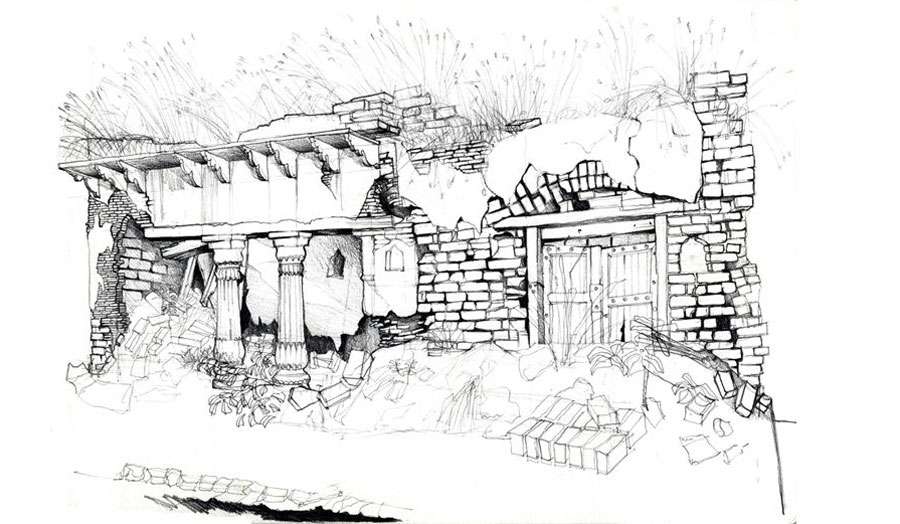
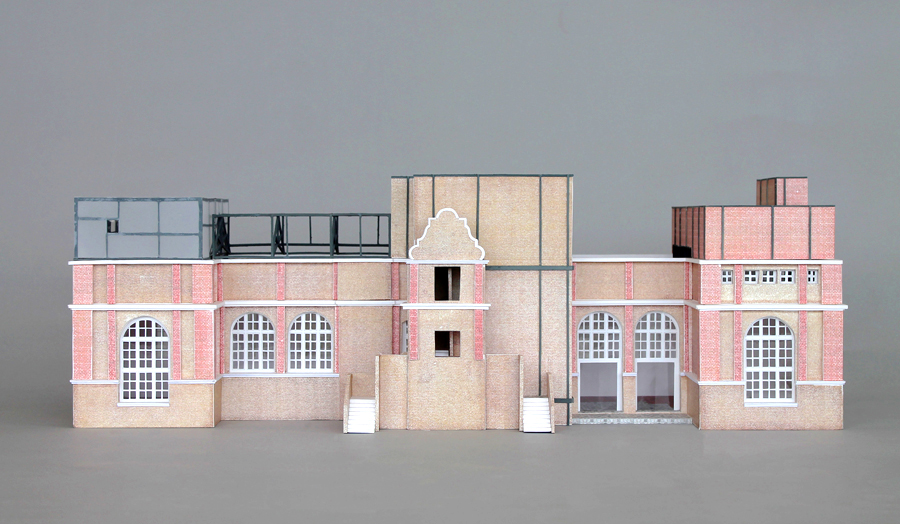

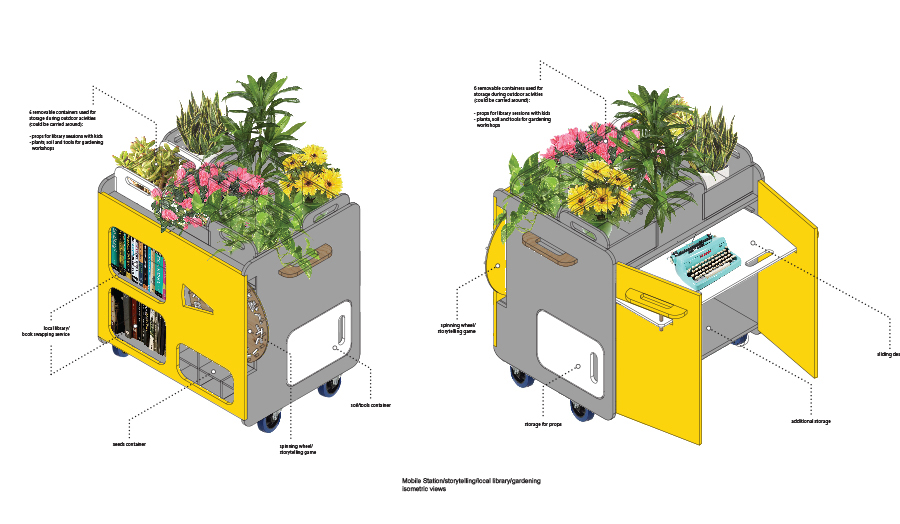
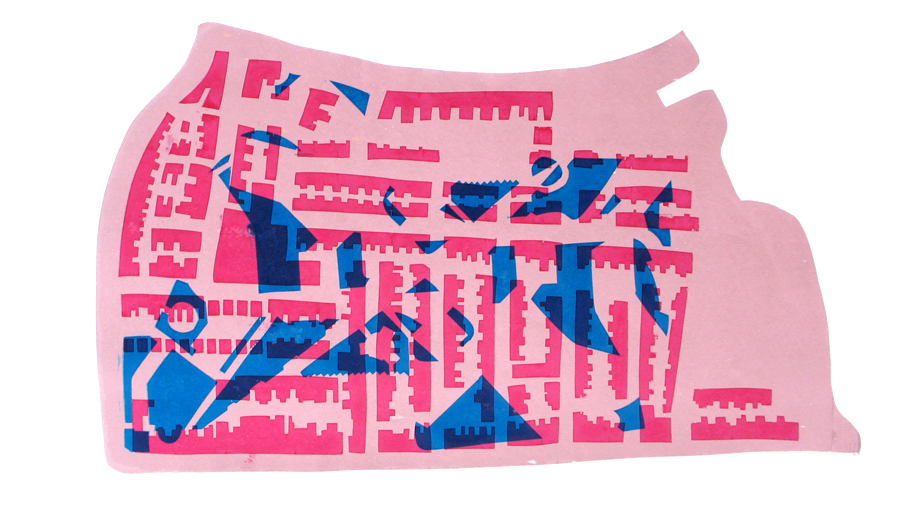
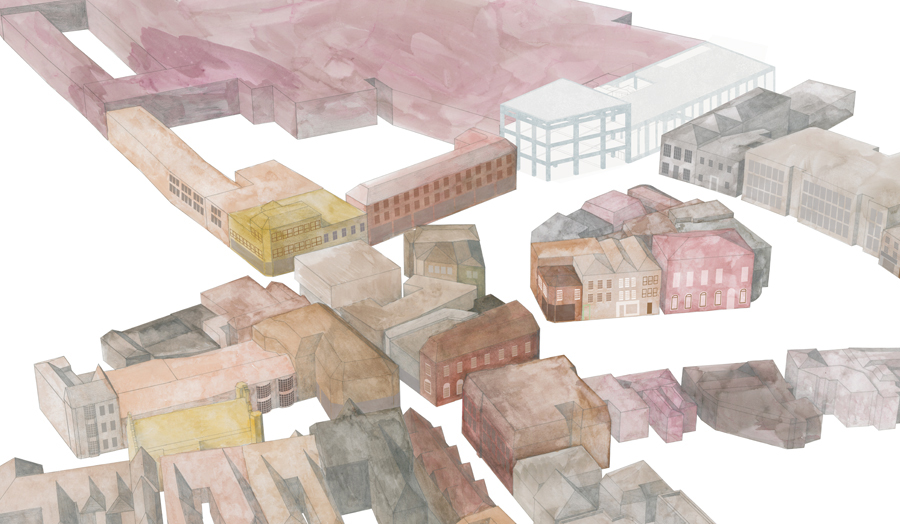
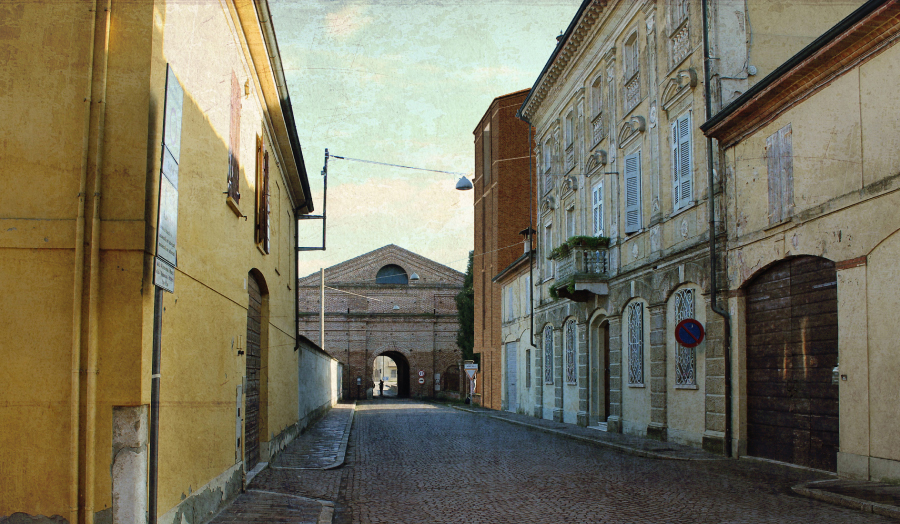
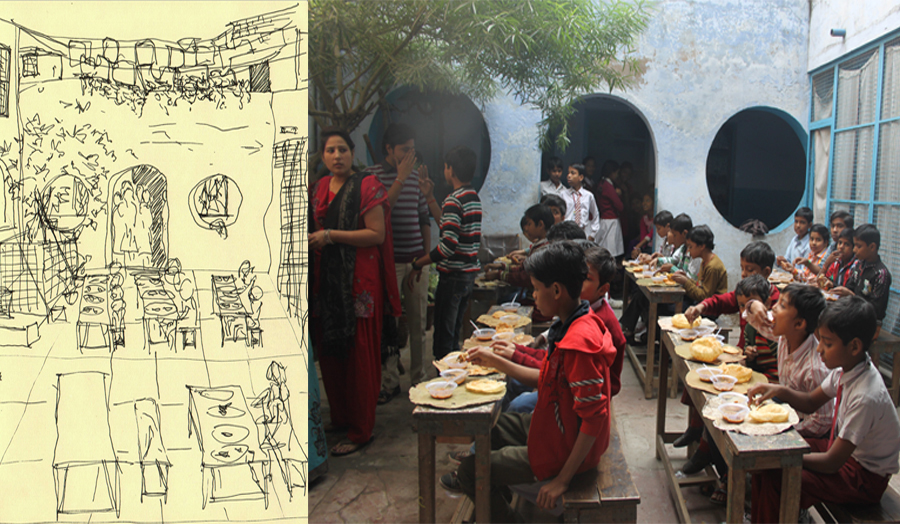
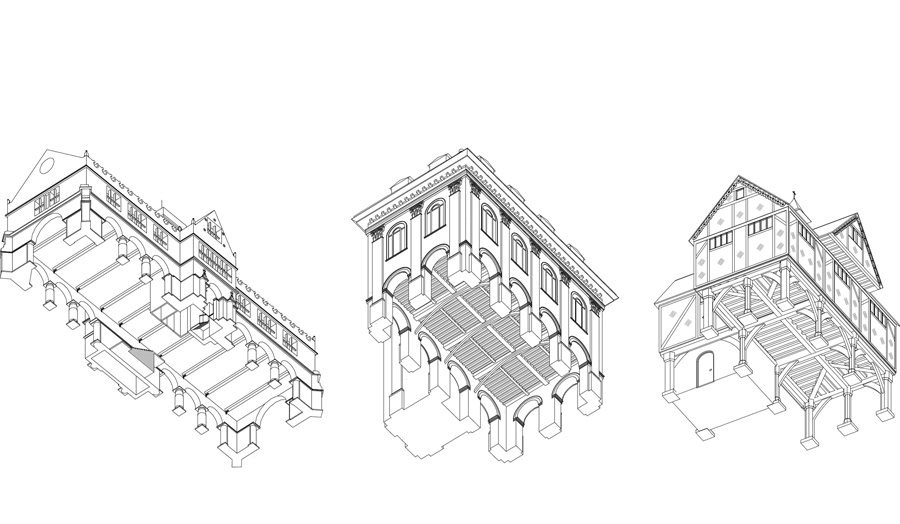
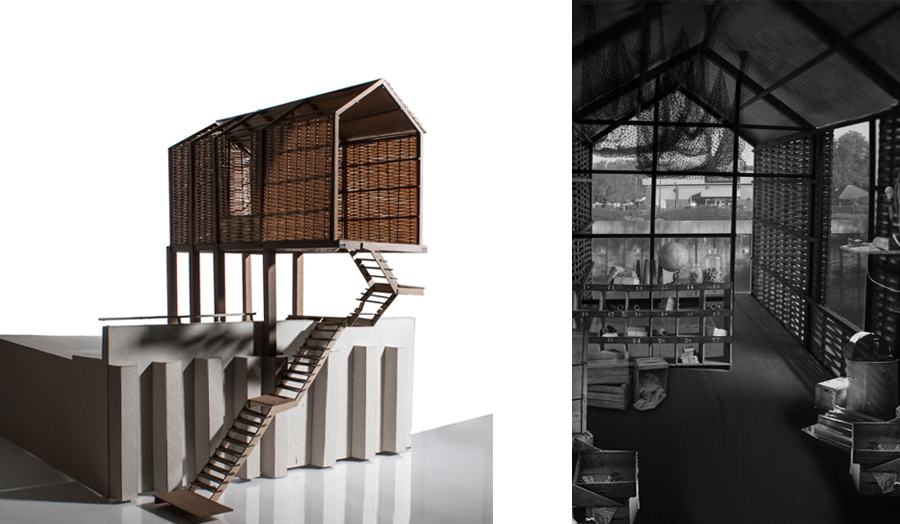
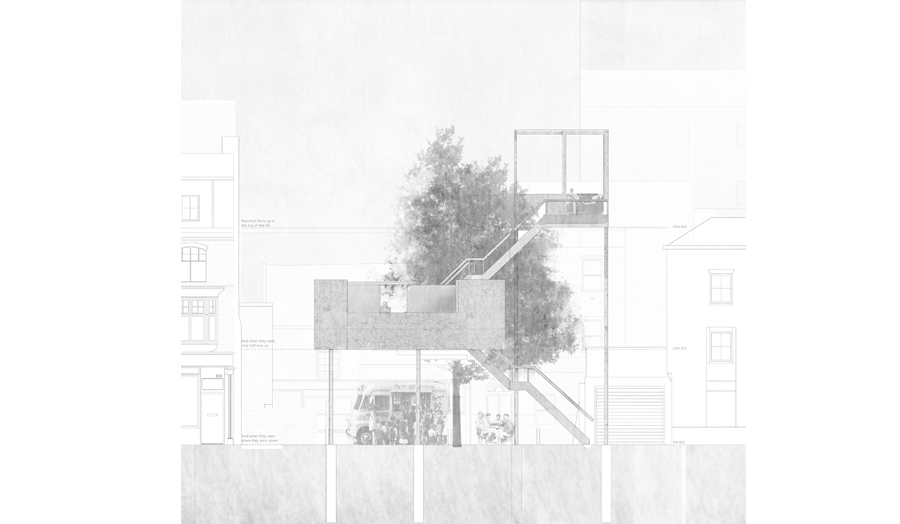







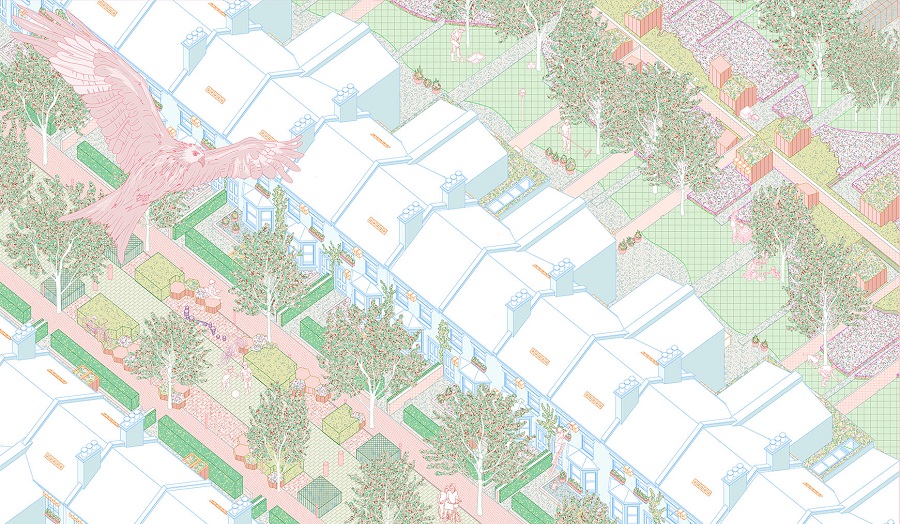




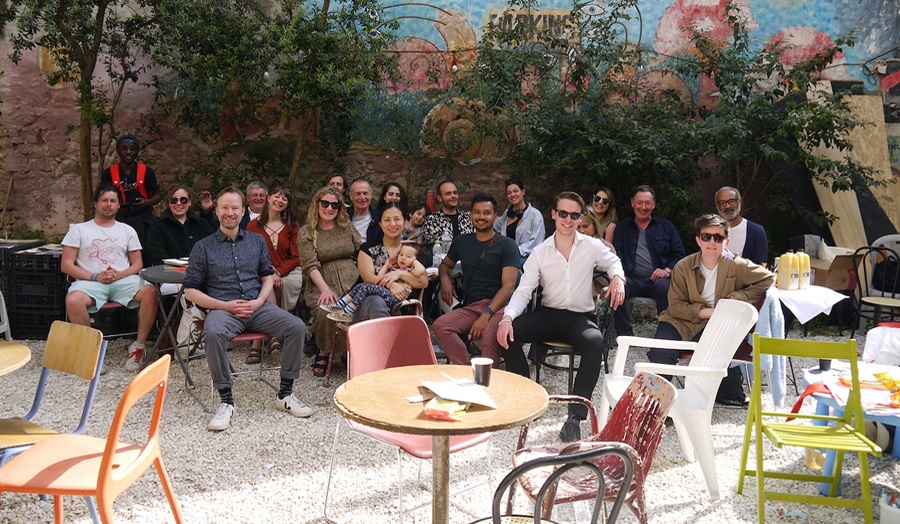
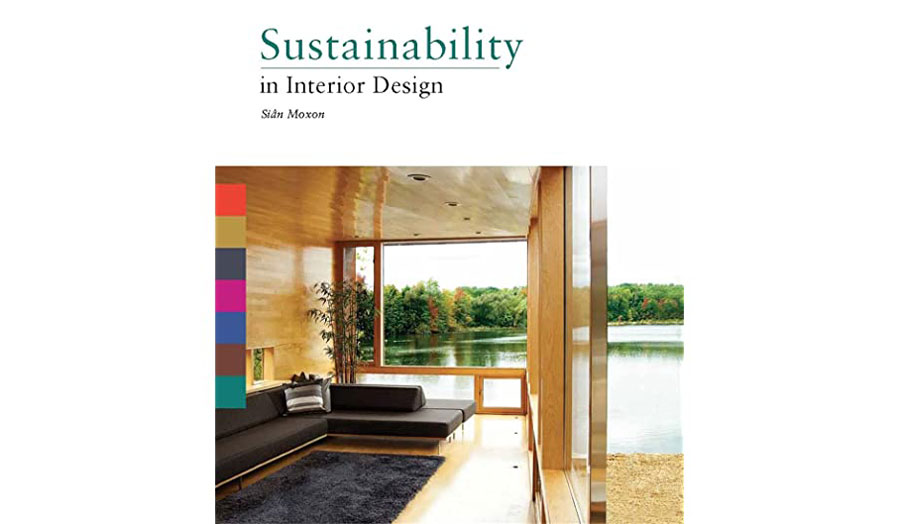
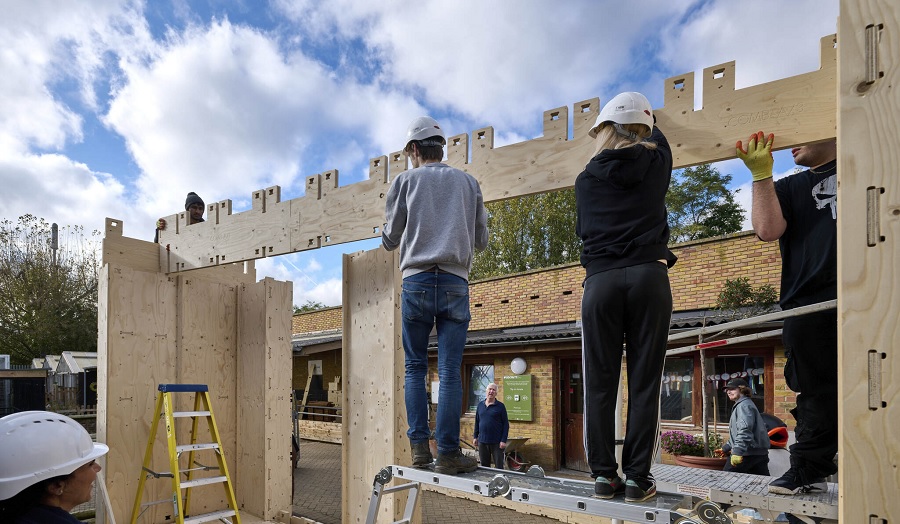
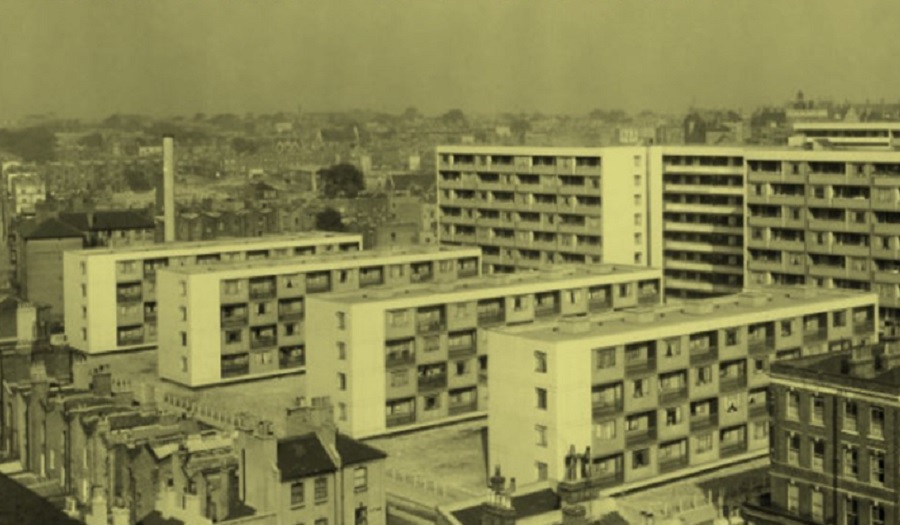



.jpg)
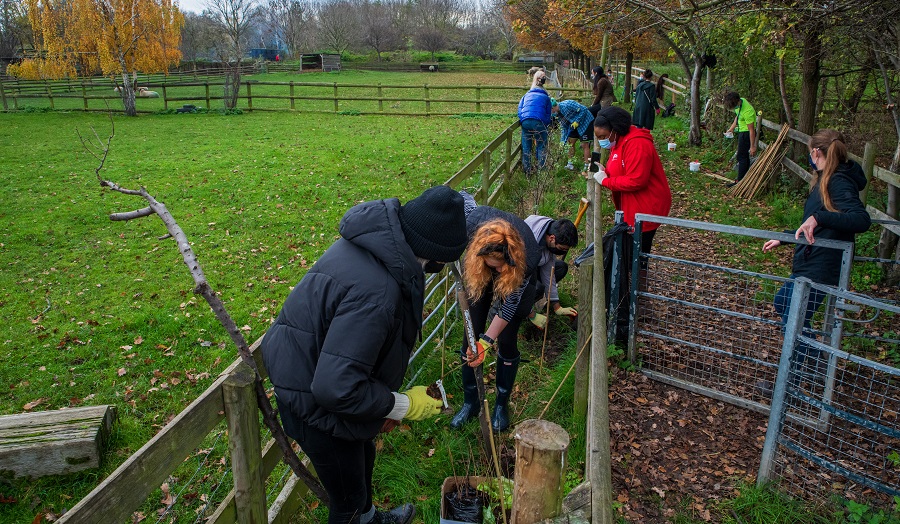

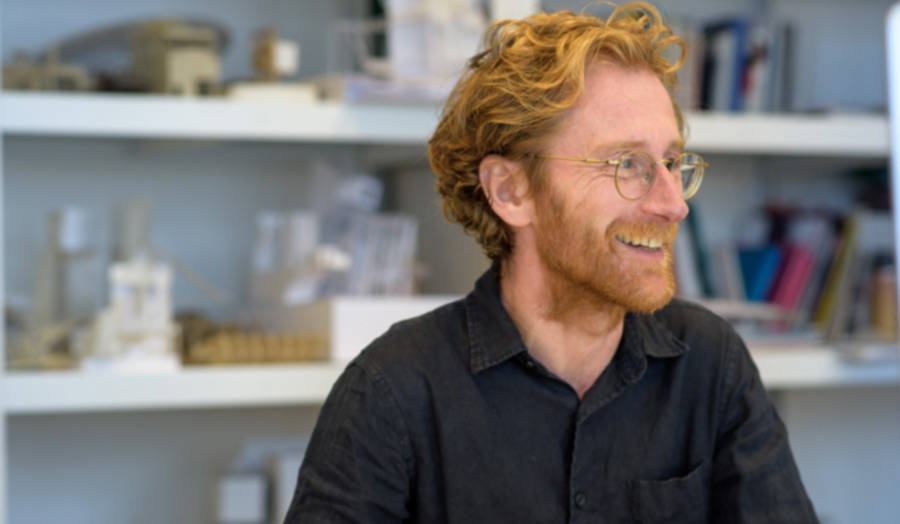
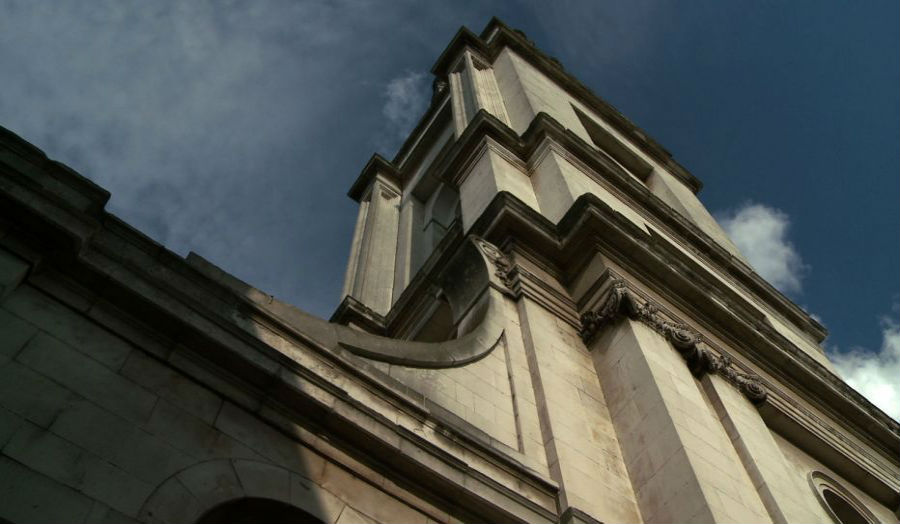
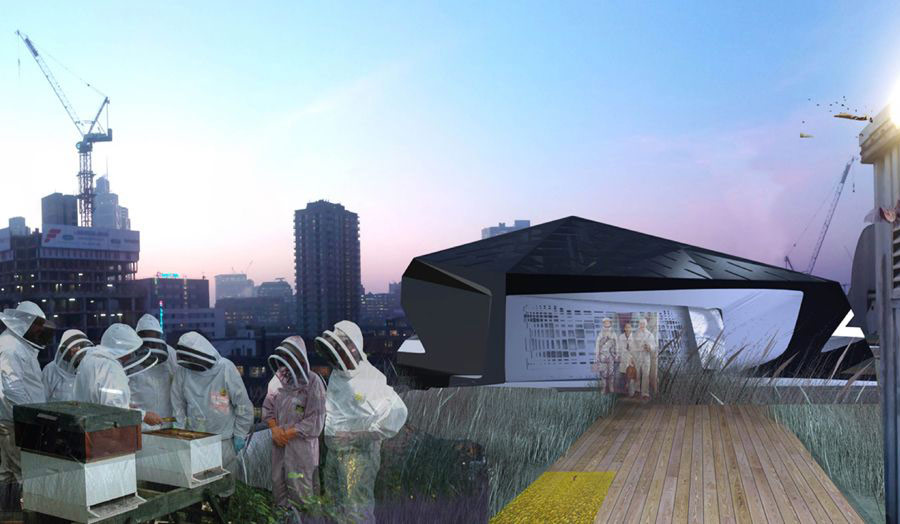
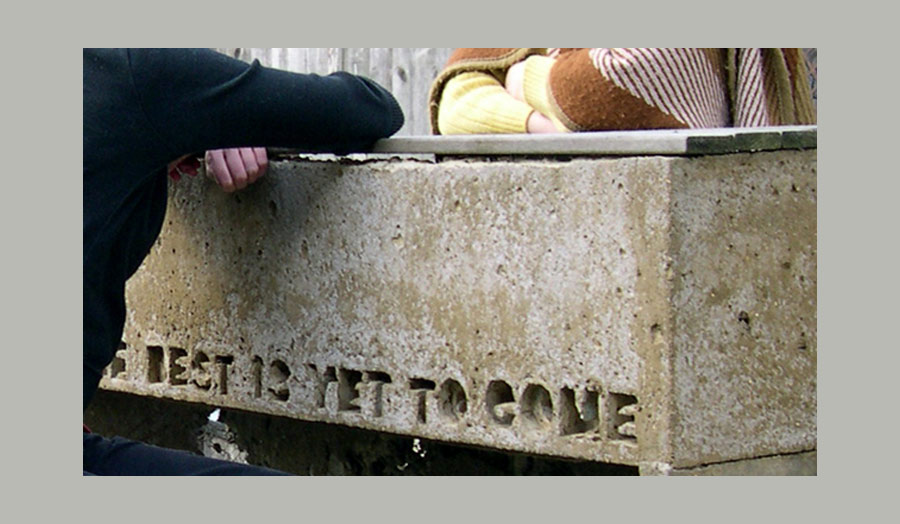
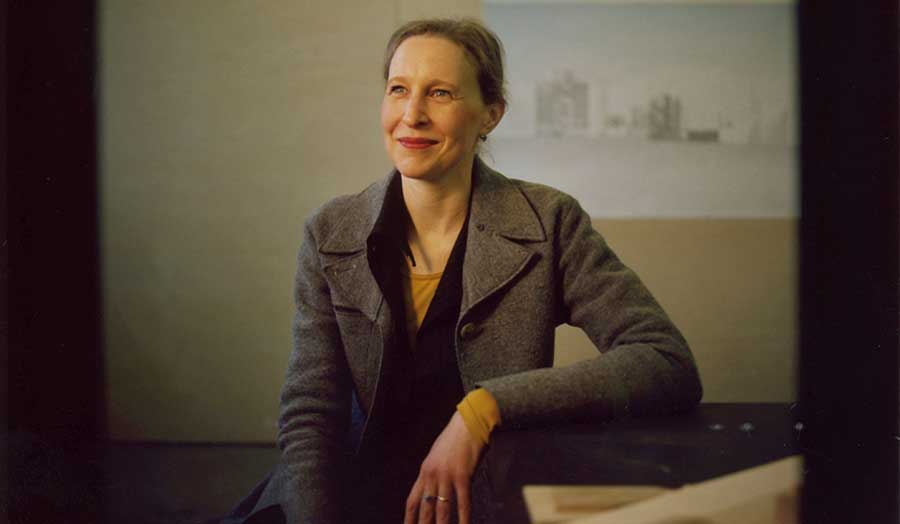
.jpg)
.jpg)
